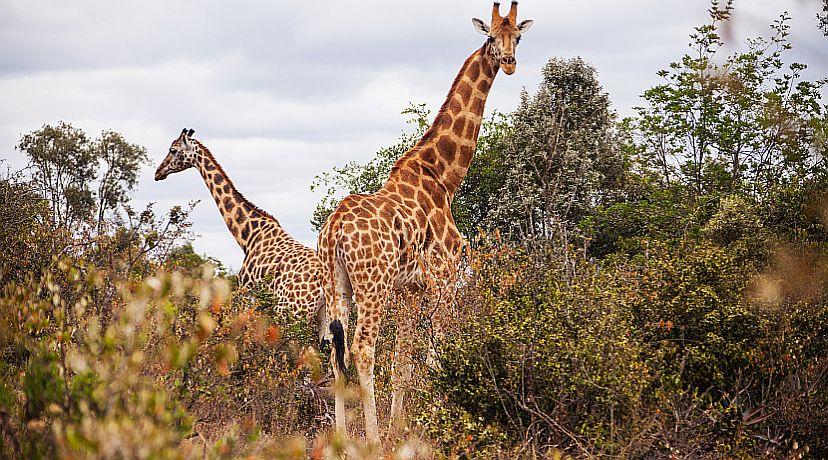The world’s tallest animal is veering threateningly close to extinction.
Recent news from the IUCN states that the beloved giraffe has been suffering an alarming drop in populations for quite some time, but their sudden placement on their ‘vulnerable’ (or ‘red’) list has come as quite a shock. Dr Julian Fennessy (Co-chair of the IUCN giraffe specialist group) says that the creatures have been undergoing a ‘silent extinction’, with their previous position as ‘least concern’ allowing them to remain ‘under the radar.’ Other more seemingly threatened species (such as elephants and rhinos) have understandably been the focal point in the fight against extinction, but with giraffe populations plummeting by roughly 38% since 1985, their cause is one that can no longer be ignored.
But what exactly are the threats faces by giraffes today? Some blame can be placed on the rapid growth of human populations; elsewhere, the expansion of farming and deforestation can be held responsible for the loss of habitats. Distressingly, however, it would seem that a major threat to giraffe populations actually comes from civil unrest: in war-torn areas such as Northern Kenya, Somalia and Ethiopia, giraffes are tragically viewed as little more than war fodder; a large animal, whose flesh can feed a number of people.

While there is evidence of some populations managing to expand (South Africa has seen their giraffe numbers increase by two or three times, decade on decade), there are areas in which these gentle giants are suffering insurmountably. Take, for example, the Nubian giraffe has seen its numbers fall dramatically over the last 30 years, with overall populations in East Africa suffering a swift nosedive of 95% over the same period of time. With all of that said: is there any hope for these at-risk ruminants? Dr Fennessy seems to think so.
‘If you go on a safari, giraffes are everywhere,’ states Fennessy, reiterating the growth of populations in South Africa. And while these safaris may not be representative of populations throughout Africa, experts do hope that the added attention given by the IUCN will ensure that the management of tourist-driven areas will only be beneficial to the species. ‘South Africa is a good example of how you can manage wildlife,’ adds ZSL’s Chris Ransom; ‘I think giraffes can survive, with the right conservation efforts, and we can ensure that the animals do live in the wild. There are a lot of cases of success in conservation. The giraffes could be one.’
Indeed, conservation is big business Africa (southern areas especially), with many of the nation’s people caring deeply about their wildlife. And with conservation trips on the rise, we can only hope that this added attention and support from the public will provide a better future for giraffe populations.
If you would like to take part in conservation efforts, we have several fantastic projects located throughout Africa. Our projects page provides many options for your next volunteer trip; or if you’re a little unsure as to where you might like to go, head on over to our project finder!










